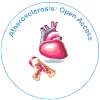Using GH-Method: Math-Physical Medicine to Investigate the Risk Probability of Metabolic Disorders Induced Cardiovascular Diseases or Stroke
Received Date: May 06, 2020 / Accepted Date: May 18, 2020 / Published Date: May 25, 2020
Abstract
The author applied topology, nonlinear algebra, partial differential equations, and finite element method to develop a 10-dimensional complex mathematical model of metabolism. It includes 4 medical condition categories and 6 lifestyle detail categories with a total of ~500 elements. Then he has collected ~1.5 million data since 1/1/2012.
He conducted both time series analysis and spatial analysis to investigate the complex relationships among weight, glucose, and blood pressure with big biomedical data (lipid data are limited due to their collection via labs only). Furthermore, he has also developed a simulation model to calculate risk probability of having a CVD or stroke throughout different time scale.
In this article, he compares two specific chronic diseases patients with CVD histories. Patient A has dropped his risk from 82%-94% before 2010 (with 5 cardiac episodes) down to 55-56% in 2019 (has not suffered any more cardiac event since).
Patient B suffered one chest pain in 2018 due to her continuous overweight which further amplified her metabolic disorders condition. Her spatial analysis diagrams are significantly different from Patient A as a result of taking her chronic diseases medications to “hide” the potential “time bomb”, heart attack.
Keywords: Cardiovascular Disease (CVD); Blood Pressure; Glucose; Stroke; Medication
Citation: Hsu GC (2020) Using GH-Method: Math-Physical Medicine to Investigate the Risk Probability of Metabolic Disorders Induced Cardiovascular Diseases or Stroke. Atheroscler Open Access 5: 128. Doi: 10.4172/asoa.1000128
Copyright: © 2020 Hsu GC. This is an open-access article distributed under the terms of the Creative Commons Attribution License, which permits unrestricted use, distribution, and reproduction in any medium, provided the original author and source are credited.
Share This Article
Open Access Journals
Article Tools
Article Usage
- Total views: 1862
- [From(publication date): 0-2020 - Mar 31, 2025]
- Breakdown by view type
- HTML page views: 1141
- PDF downloads: 721
